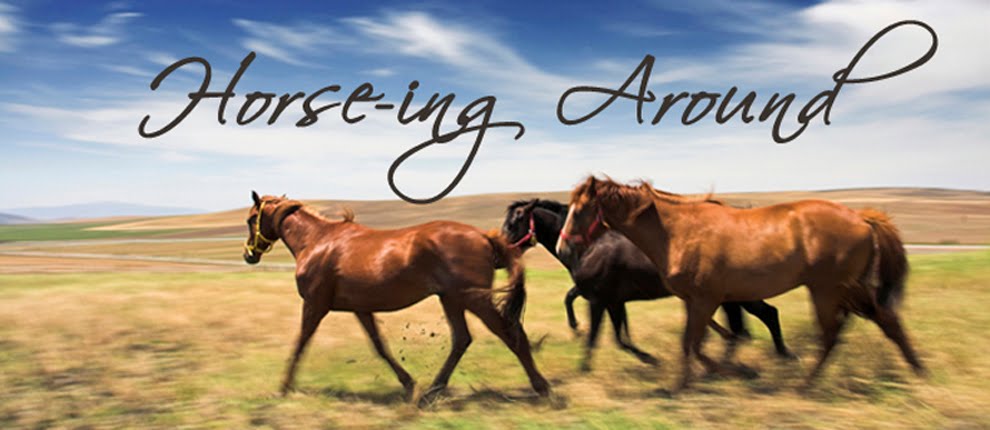HORSE HEALTH
Signs of a healthy horse The following points may assist you in determining if your horse is well and further investigation should be undertaken if any abnormal symptoms are shown by your horse. Make sure that you get to know your horses habits as this will greatly assist you in determining if your horse is unwell.
Eyes – A healthy horse or pony’s eyes should be bright and clear and they should take interest in their surroundings. If the eyes look dull and lifeless, then you should investigate further.
Ears – A healthy horse or pony’s ears should be alert and they should follow your movements. Any horse/ponies with ‘droopy’ ears or unnatural lying of the ears flat back. Be careful approaching the horse or pony because the aggressive stance of the ears could mean that your horse/pony may be in pain and may lash out at you if you are unprepared.
Weight – Horses should maintain weight with very little change between seasons. Sudden weight loss should be investigated immediately as this could be a sign of colic. Make sure that if your horse wears a rug that you check under this rug every day as sand colic can come cause sudden weight loss very quickly.
Stance – If your horse does not appear to be standing in a normal manner, this could be due to a problem in the legs or hooves. Stone bruising is quite common so a check of the horses hooves should be undertake every day to ensure that no stones or other bodies have become lodged in the hoof. If possible, ask a friend or family member to walk the horse/pony out if you are having trouble identifying which leg is the problem as your horse/pony’s head may ‘bob’ when stepping on injured limb or hoof. Running your hands down the leg/hooves may identify any hot spots which could indicate the site of the injury.
Nostrils – If your horse/pony is unwell they may have a runny nose (just like us) which could indicate a cold or something a little more severe depending on the discharge. Temperature – It is helpful to regularly take your horse/pony’s temperature as any rise in temperature could mean that your horse is unwell.
Feed Patterns - A healthy horse will welcome its feed however a sick horse may fuss with their feed or refuse to eat at all. This requires immediate investigation as this could be the start of colic.
Manure Droppings – If your horse is unwell, their manure droppings may change so attention should be paid to their individual droppings. Runny manure may be a sign of constipation.
Signs of a healthy horse The following points may assist you in determining if your horse is well and further investigation should be undertaken if any abnormal symptoms are shown by your horse. Make sure that you get to know your horses habits as this will greatly assist you in determining if your horse is unwell.
Eyes – A healthy horse or pony’s eyes should be bright and clear and they should take interest in their surroundings. If the eyes look dull and lifeless, then you should investigate further.
Ears – A healthy horse or pony’s ears should be alert and they should follow your movements. Any horse/ponies with ‘droopy’ ears or unnatural lying of the ears flat back. Be careful approaching the horse or pony because the aggressive stance of the ears could mean that your horse/pony may be in pain and may lash out at you if you are unprepared.
Weight – Horses should maintain weight with very little change between seasons. Sudden weight loss should be investigated immediately as this could be a sign of colic. Make sure that if your horse wears a rug that you check under this rug every day as sand colic can come cause sudden weight loss very quickly.
Stance – If your horse does not appear to be standing in a normal manner, this could be due to a problem in the legs or hooves. Stone bruising is quite common so a check of the horses hooves should be undertake every day to ensure that no stones or other bodies have become lodged in the hoof. If possible, ask a friend or family member to walk the horse/pony out if you are having trouble identifying which leg is the problem as your horse/pony’s head may ‘bob’ when stepping on injured limb or hoof. Running your hands down the leg/hooves may identify any hot spots which could indicate the site of the injury.
Nostrils – If your horse/pony is unwell they may have a runny nose (just like us) which could indicate a cold or something a little more severe depending on the discharge. Temperature – It is helpful to regularly take your horse/pony’s temperature as any rise in temperature could mean that your horse is unwell.
Feed Patterns - A healthy horse will welcome its feed however a sick horse may fuss with their feed or refuse to eat at all. This requires immediate investigation as this could be the start of colic.
Manure Droppings – If your horse is unwell, their manure droppings may change so attention should be paid to their individual droppings. Runny manure may be a sign of constipation.

Here I am on Galaxy, he loves his food & is a very healthy, happy horse who loves going out to gymkhanas & Pony Club Musters.

No comments:
Post a Comment
Thank you for your comment.